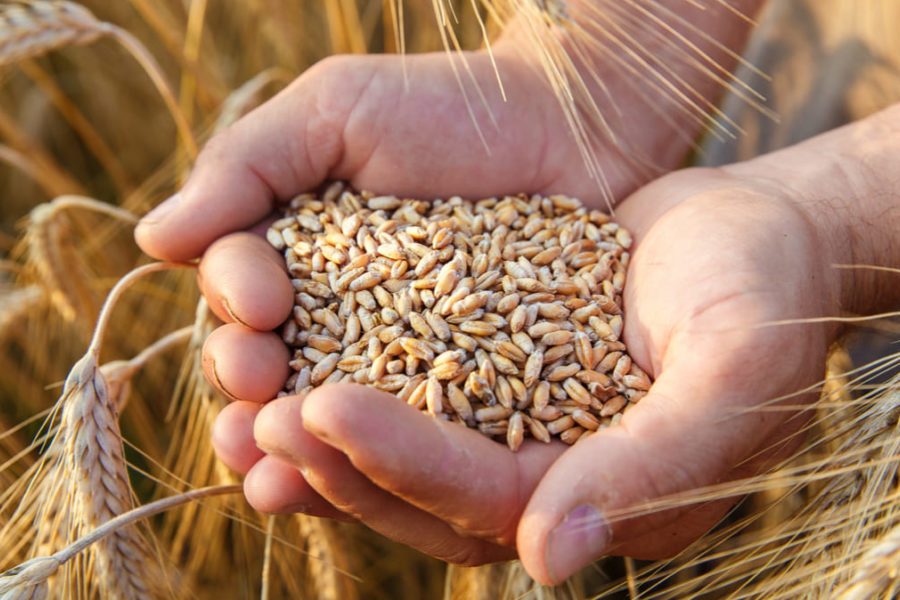Gluten – What is it?
Gluten is a group of proteins found in certain cereal groups. The most common types of gluten are gliadins, prolamins and glutelins.
In wheat they represent up to 85% of the total protein. When a person overreacts to gluten foods or products, they develop what is known as gluten intolerance or celiac disease.
In small quantities, some cosmetic and pharmaceutical products may contain gluten in their composition. Some examples include: makeup, mascara, lipstick, toothpaste, shampoo, drugs and shower gel.
Although for most people the use of such products is completely safe, when a person has gluten intolerance, this can cause damage and health consequences. The most common symptoms are irritation, inflammation, skin rash and digestion disorders.
Examples of foods and products
Gluten is found in all foods that contain wheat, spelt, barley and rye in its composition. In a gluten-free diet the first foods to avoid are bread, pasta and all wheat flour products.
Other products and foods may contain gluten as a thickener. For example, tomato sauce, mayonnaise and dairy products. Being able to tell the difference between which types of foods and products are gluten-free and which ones are not, is essential for people who are allergic to gluten.
Examples of foods and products with gluten:
- Wheat and byproducts (flour, bread, cookies)
- Barley
- Malt
- Yeast
- Rye
- Burgul
Examples of gluten-free foods and products:
- Fruits
- Vegetables
- Flax seeds
- Sesame seeds
- Meat
- Seafood
- Legumes
- Nuts
- Chia seeds
- Quinoa
- Buckwheat
- Integral rice
- Amaranth
- Coconut flour
Examples of foods and products that may contain gluten:
- Instant soup
- Soy sauce
- Teriyaki sauce
- Dairy products
- Instant coffee
- Ketchup
- Mustard
- Mayonnaise
- Beer
- Snacks
- Spirits
- Oats
Are gluten-free products healthy?
Generalizing the link between gluten-free products and a better health condition isn’t correct. In fact, most of the examples of industrial products suitable for celiacs don’t fall into the category of healthy foods.
In general, industrial products are high in carbohydrates and vegetable oil of poor quality. While these products may not contain gluten in their composition, their excess fats and sugars don’t make them the best choice.
In fact, industrial gluten-free products usually have a high glycemic index and excess in their consumption can lead to weight gain. They can increase the likeliness of diseases and imbalances in carbohydrate metabolism.
Gluten-free industrial bakery products and cookies are high in simple carbohydrates. Limiting this type of foods is one of the first rules to a healthy diet, as well as to prevent nutritional diseases such as type 2 diabetes.
The best thing for a person with intolerance is cooking or opting for products suitable for celiacs at home.
So gluten products? Damages and consequences
Avoidance of gluten products is advised only when a person is gluten intolerant. Research doesn’t confirm damage from this protein on a person who can digest it normally. (1) (2) (3)
Foods and products that contain gluten can cause different types of harm to people with some degree of intolerance. The most common consequences are damage to the digestive system and suppression of the immune system.
A person who is allergic to gluten products and doesn’t put a limit on them can develop serious nutrient assimilation consequences. They’re also likely to cause damage to the gut flora, inflammation and gases.
How to know if a product is suitable for celiacs?
Gluten-free products are often labeled with the corresponding logo. When in doubt, the list of ingredients should be assessed.
By way of example, gluten may appear under the name “modified wheat starch“, “stabilizer”, “hydrolyzed gluten protein” or “thickener.” Fruits, vegetables or unprocessed meats don’t contain this protein.
Do all types of bread have gluten?
In wheat, all proteins are practically gluten. These can’t be eliminated, so it’s contained in most types of wheat bread.
However, it’s possible to make baked goods or bread that are suitable for celiacs. By using alternative flours such as buckwheat, rice, almonds, coconut or corn flour, preparing gluten-free bread is possible.
Does oatmeal have gluten?
Although oatmeal doesn’t contain gluten in its composition, it usually gets contaminated during its manufacturing process.
In industries where oats are packaged, other foods and products that have gluten in their composition are usually packaged along with it.
Both the use of machinery and oat crops are often shared with the production of other wheat-based products.
Some brands of oatmeal have managed to produce gluten-free oatmeal. However, scientists insist that they should improve their production standards. Analyses have detected the presence of this molecule even in brands that are marketed as products suitable for celiacs. (3)
Gluten is a group of proteins that are part of the composition of most cereals. Gluten foods and products are typically bread and all wheat-flour-based byproducts.
In addition, gluten can be used as a food additive and in the manufacture of drugs and cosmetic products. Its consumption is safe for most people – the exception: people with some degree of intolerance to gluten or celiac disease.
The excess of (gluten or gluten-free) products that are high in sugars and unhealthy fats can cause serious damage and health outcomes.
Link: https://nutricion360.es/dietas/alimentacion-saludable/gluten-alimentos-productos
Date: January 6th, 2020
REFERENCES:
- Science-based Review on Benefits, Dosage, Side Effects, https://examine.com/supplements/gluten/
- Why Oats Are Safe and Healthy for Celiac Disease Patients, https://www.ncbi.nlm.nih.gov/pmc/articles/PMC5635790/
- Pure Oats as Part of the Canadian Gluten-Free Diet in Celiac Disease: The Need to Revisit the Issue. https://www.ncbi.nlm.nih.gov/pmc/articles/PMC4904650/
- Alimentos con y sin glten- Asociaco Celiacs de Catalunya. https://www.celiacscatalunya.org/pdfs/apto_no_apto.pdf
- A Review on the Glutn-Free Diet: Technological and Nutritional Challenges. https://www.researchgate.net/publication/327870948_A_Review_on_the_Gluten-Free_Diet_Technological_and_Nutritional_Challenges
Nutrigenomics Institute is not responsible for the comments and opinions included in this article






